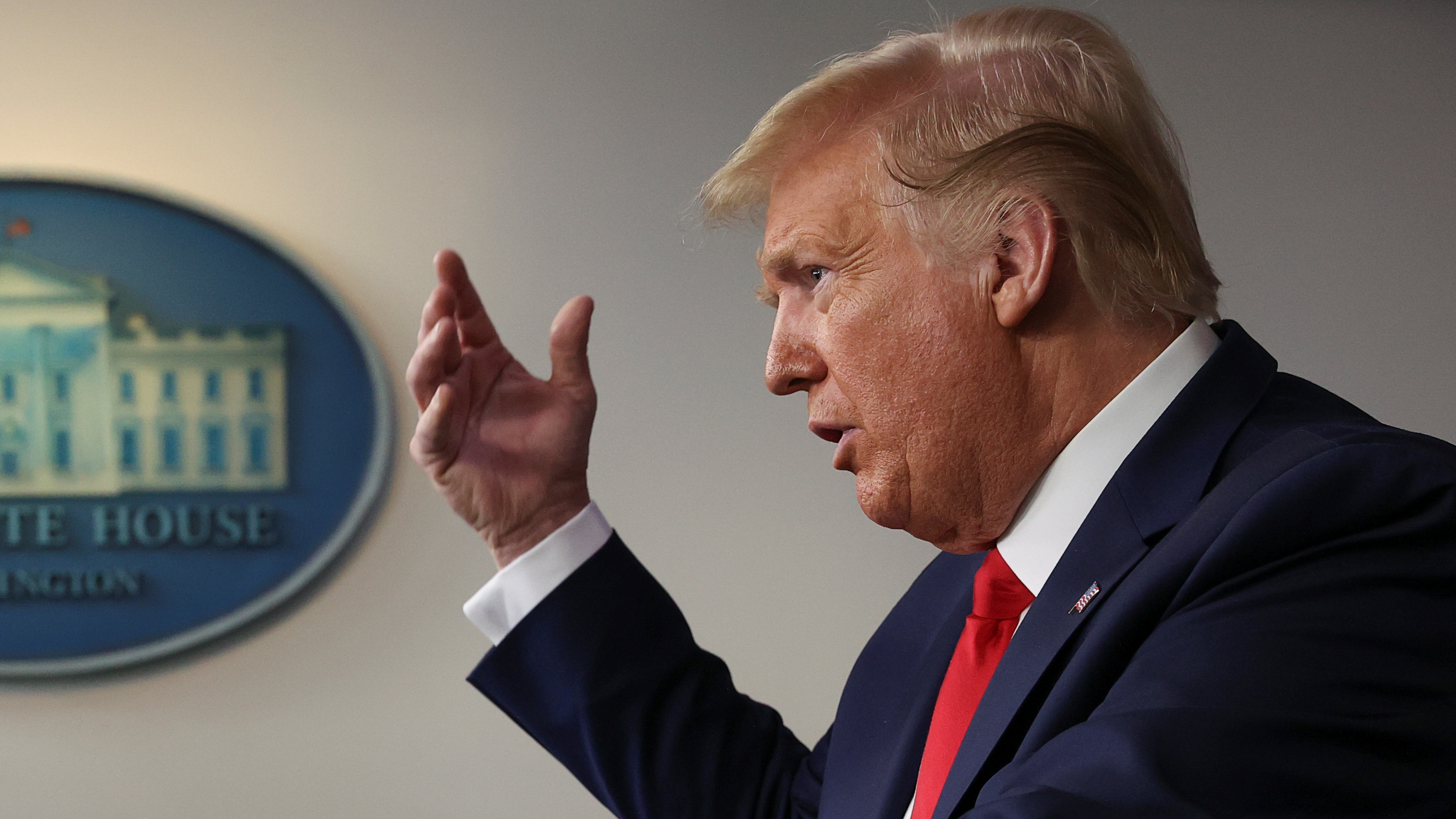
U.S. President Donald Trump addresses the daily coronavirus response briefing at the White House in Washington, U.S., March 18, 2020. /Reuters
U.S. President Donald Trump addresses the daily coronavirus response briefing at the White House in Washington, U.S., March 18, 2020. /Reuters
U.S. President Donald Trump signed another coronavirus response bill on Wednesday.
Among the new law's sweeping provisions, the Families First Coronavirus Response Act assures paid leave for those diagnosed with or caring for someone affected by COVID-19, free testing for all, including the uninsured, and bolstered food assistance programs.
The bill passed the Senate by a vote of 90-8.
"It is a well-intentioned bipartisan product assembled by House Democrats and President Trump's team that tries to stand up and expand some new relief measures for American workers," said Senate Majority Leader Mitch McConnell.
It will also provide additional Medicaid funding, food assistance, and unemployment benefits.
It is the second massive spending bill the U.S. Congress has adopted in response to the pandemic, following last week's 8.3 billion U.S. dollars appropriation for vaccine research and development.
Senate Republicans are now moving at "warp speed," per McConnell, to draft the third bill – based on a one-trillion-U.S.-dollar White House proposal that would include up to 500 billion in direct payments to Americans, starting as early as April 6. The rest of the money would go to bail out the airline industry and other "distressed" sectors of the U.S. economy, as well as small businesses forced to shutter by the pandemic.
Free testing
The bill would provide free coronavirus testing for those who need it. The Trump administration has struggled to make such tests available.
The legislation would require private healthcare insurers to pay for all testing costs for beneficiaries with medical coverage. It also would cover testing costs for people who receive healthcare through government-run programs such as Medicare and Medicaid.
It provides one billion U.S. dollars to the National Disaster Medical System, a coordinated healthcare system and partnership involving several federal agencies, to cover costs for people without medical insurance.
Paid sick leave
The bill would require governments and private businesses with fewer than 500 employees to provide up to two weeks of paid sick leave for those who miss work due to coronavirus or for those who have to take care of family members affected by the outbreak.
Workers could take another 10 weeks off, if needed, at two-thirds of their pay. Businesses and self-employed workers would be able to claim refundable tax credits to cover the expense.
The bill would not apply to large employers like McDonald's Corp that do not provide paid sick leave. Some large employers, including Walmart Inc and Darden Restaurants, have announced they will do so voluntarily.
Unemployment benefits
The bill would cover costs for states that extend unemployment payments for six months beyond the usual six-month time limit.
The benefit would apply only to states that see their unemployment rates rise by at least 10 percent. They would get interest-free loans, if needed, to cover benefit costs under the bill.
It also would encourage employers to avoid layoffs by reducing employees' hours instead. Affected employees would get unemployment benefits to offset those lost wages.
Food assistance
The bill would strengthen several programs that help feed low-income Americans. It would provide 250 million U.S. dollars for home-delivery meals to seniors, 400 million U.S. dollars for food banks, and 500 million U.S. dollars to help feed mothers and young children.
It would allow schools that provide free breakfasts and lunches to low-income students to distribute those meals to be taken out, rather than requiring them to be consumed in the cafeteria.
Source(s): Reuters